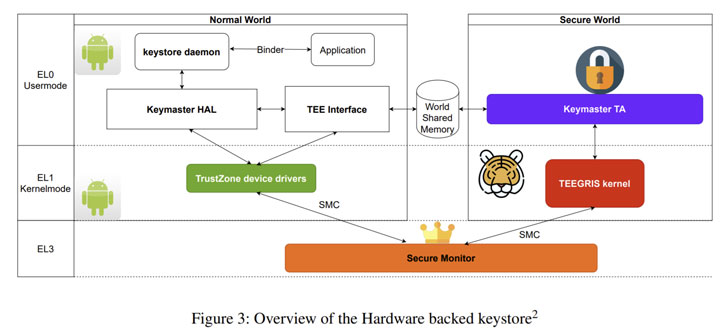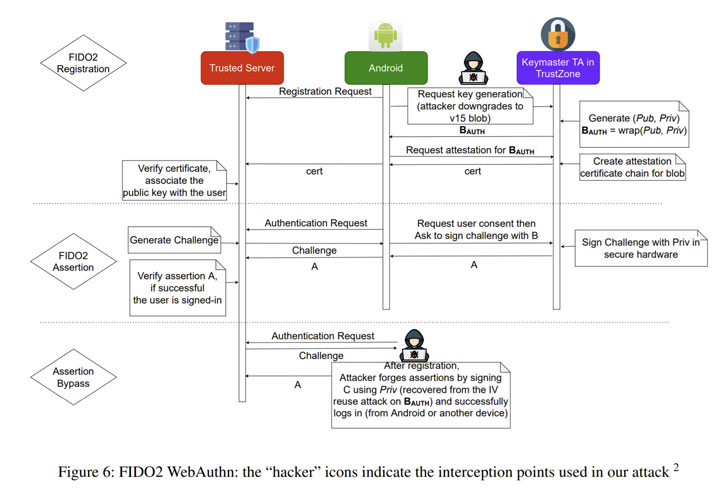A group of academics from Tel Aviv University have disclosed details of now-patched “severe” design flaws affecting about 100 million Android-based Samsung smartphones that could have resulted in the extraction of secret cryptographic keys.
The shortcomings are the result of an analysis of the cryptographic design and implementation of Android’s hardware-backed Keystore in Samsung’s Galaxy S8, S9, S10, S20, and S21 flagship devices, researchers Alon Shakevsky, Eyal Ronen, and Avishai Wool said.
Trusted Execution Environments (TEEs) are a secure zone that provide an isolated environment for the execution of Trusted Applications (TAs) to carry out security critical tasks to ensure confidentiality and integrity.
On Android, the hardware-backed Keystore is a system that facilitates the creation and storage of cryptographic keys within the TEE, making them more difficult to be extracted from the device in a manner that prevents the underlying operating system from having direct access.
Instead, the Android Keystore exposes APIs in the form of Keymaster TA (trusted application) to perform cryptographic operations within this environment, including secure key generation, storage, and its usage for digital signing and encryption. On Samsung mobile devices, the Keymaster TA runs in an ARM TrustZone-based TEE.
However, security flaws uncovered in Samsung’s implementation meant that they could provide an adversary with root privileges a workable path to recover the hardware-protected private keys from the secure element. The list of issues identified is as below –
- Initialization Vector (IV) reuse in Keymaster TA (CVE-2021-25444) – An IV reuse vulnerability in Keymaster prior to SMR AUG-2021 Release 1 allows decryption of custom keyblob with privileged process. (Impacts Galaxy S9, J3 Top, J7 Top, J7 Duo, TabS4, Tab-A-S-Lite, A6 Plus, and A9S)
- Downgrade attack in Keymaster TA (CVE-2021-25490) – A keyblob downgrade attack in Keymaster prior to SMR Oct-2021 Release 1 allows [an] attacker to trigger IV reuse vulnerability with privileged process. (Impacts Galaxy S10, S20, and S21)
In a nutshell, successful exploitation of the flaws against the Keymaster TA could achieve unauthorized access to hardware-protected keys and data secured by the TEE. Implications of such an attack could range from an authentication bypass to advanced attacks that can break fundamental security guarantees offered by cryptographic systems.
Following responsible disclosure in May and July 2021, the issues were addressed via security updates shipped in August and October 2021 for the affected devices. The findings are expected to be presented at the USENIX Security Symposium later this August.
“Vendors including Samsung and Qualcomm maintain secrecy around their implementation and design of [TrustZone operating systems] and Tas,” the researchers said. “The design and implementation details should be well audited and reviewed by independent researchers and should not rely on the difficulty of reverse engineering proprietary systems.”




